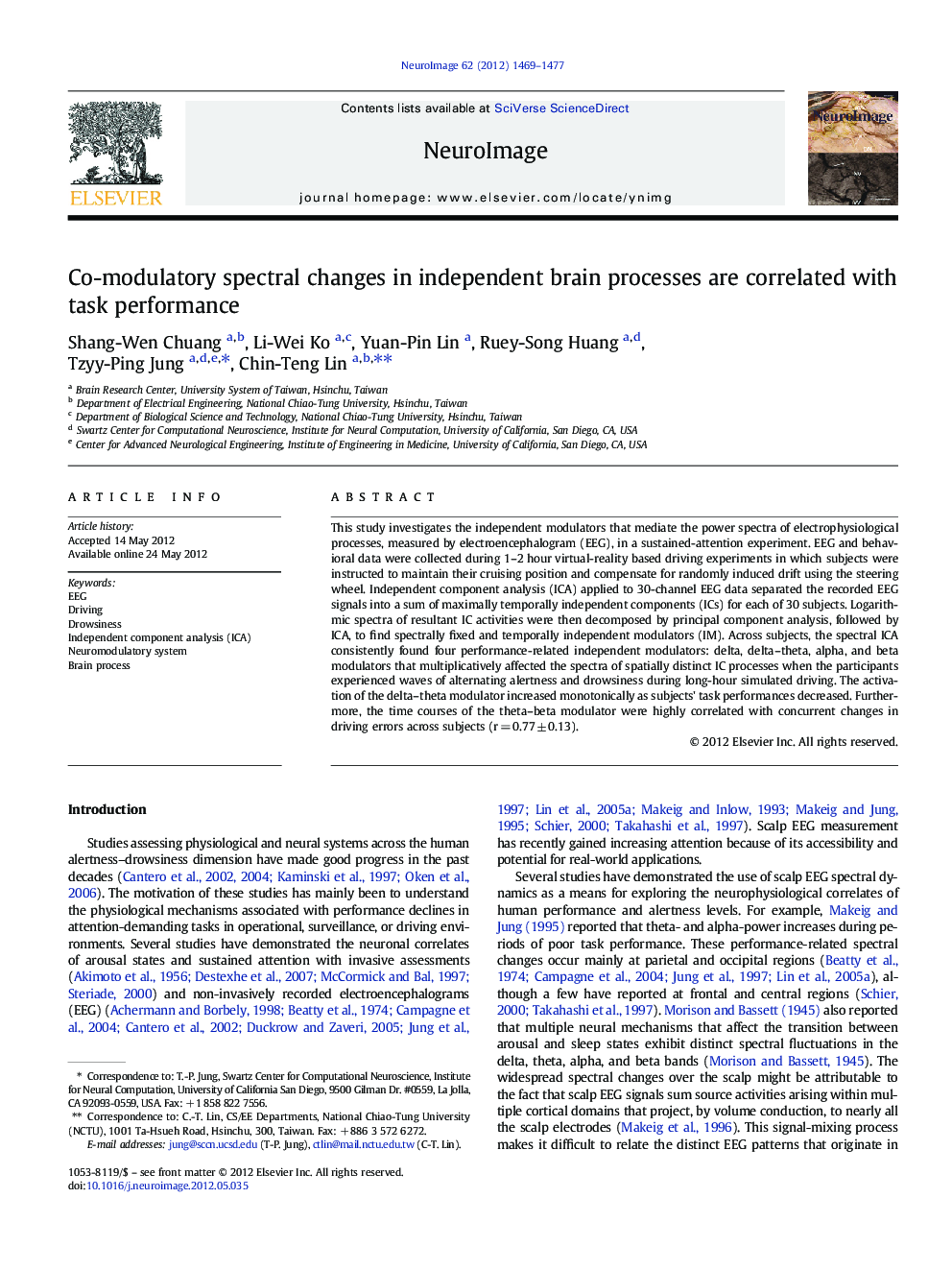| Article ID | Journal | Published Year | Pages | File Type |
|---|---|---|---|---|
| 6030326 | NeuroImage | 2012 | 9 Pages |
This study investigates the independent modulators that mediate the power spectra of electrophysiological processes, measured by electroencephalogram (EEG), in a sustained-attention experiment. EEG and behavioral data were collected during 1-2 hour virtual-reality based driving experiments in which subjects were instructed to maintain their cruising position and compensate for randomly induced drift using the steering wheel. Independent component analysis (ICA) applied to 30-channel EEG data separated the recorded EEG signals into a sum of maximally temporally independent components (ICs) for each of 30 subjects. Logarithmic spectra of resultant IC activities were then decomposed by principal component analysis, followed by ICA, to find spectrally fixed and temporally independent modulators (IM). Across subjects, the spectral ICA consistently found four performance-related independent modulators: delta, delta-theta, alpha, and beta modulators that multiplicatively affected the spectra of spatially distinct IC processes when the participants experienced waves of alternating alertness and drowsiness during long-hour simulated driving. The activation of the delta-theta modulator increased monotonically as subjects' task performances decreased. Furthermore, the time courses of the theta-beta modulator were highly correlated with concurrent changes in driving errors across subjects (r = 0.77 ± 0.13).
⺠We apply independent component analysis to assess brain processes during driving. ⺠We report components' spectral dynamics and their relationship with task performance. ⺠We assess independent co-modulators mediating spectral activates of cortical areas. ⺠Task-related co-modulators are very consistent across subjects. ⺠Time courses of co-modulators are highly correlated with task performance.
